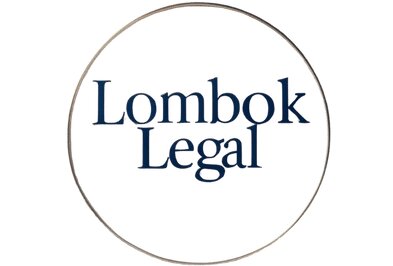
Best Investment Lawyers in Indonesia
Share your needs with us, get contacted by law firms.
Free. Takes 2 min.
Or refine your search by selecting a city:
List of the best lawyers in Indonesia

About Investment Law in Indonesia
Investment law in Indonesia is governed by several key regulations, primarily under the framework provided by the Investment Law No. 25 of 2007. This law aims to enhance the investment climate by offering incentives and protection to both domestic and foreign investors. It establishes guidelines for investment in diverse sectors, ensuring that foreign investments contribute positively to the Indonesian economy. The law also provides guidelines on how foreign business entities can set up operations and maintain compliance with the country's regulations.
Why You May Need a Lawyer
Investing in any country can be a complex endeavor, especially if you are unfamiliar with the local legal and business environment. In Indonesia, legal assistance becomes crucial in the following situations:
- Understanding the requirements and restrictions on foreign ownership in various sectors.
- Navigating the procedure for establishing a business entity, such as a PT PMA (Foreign Investment Limited Liability Company).
- Ensuring compliance with local employment laws and regulations.
- Handling disputes related to investment agreements or contracts.
- Advising on taxation and incentive programs for investors.
Local Laws Overview
Investors in Indonesia need to be aware of several key aspects of local investment laws:
- Investment Coordinating Board (BKPM): This central agency is responsible for granting business licenses and provides various services and information for investors.
- Negative Investment List: This list specifies sectors where foreign investment is either restricted or entirely prohibited.
- Company Establishment: Foreign investors typically need to establish a PT PMA, which involves registration with the BKPM and obtaining the necessary business licenses.
- Taxation: Indonesia offers various incentives for investors, including tax holidays and reductions, but also requires compliance with its taxation system.
- Dispute Resolution: The country promotes arbitration for dispute resolution in investment-related conflicts, with institutions like BANI (Indonesian National Board of Arbitration) providing mediation services.
Frequently Asked Questions
1. Can foreign investors own 100% of a business in Indonesia?
Generally, foreign investors can own up to 100% of a business, but this is subject to the Negative Investment List, which outlines sectors with ownership restrictions or prohibitions.
2. What is the Negative Investment List?
The Negative Investment List is a government-issued decree that specifies business sectors where foreign ownership is limited or prohibited.
3. How do I establish a foreign investment company in Indonesia?
Foreign investors typically establish a PT PMA, which involves registering with the BKPM, obtaining relevant business licenses, and meeting capitalization requirements.
4. Are there incentives for foreign investors in Indonesia?
Yes, Indonesia offers various incentives, including tax holidays, deductions, and simplified permit processes to attract foreign investment.
5. What are the main regulatory bodies overseeing investment in Indonesia?
The BKPM is the key regulatory body overseeing investment-related activities in Indonesia, offering guidance and issuing necessary approvals.
6. Do I need a local partner to invest in Indonesia?
This depends on the sector. Some sectors require a local partner, while others allow for full foreign ownership.
7. How are investment disputes resolved in Indonesia?
Investment disputes can be resolved through mediation or arbitration, with institutions like BANI offering established frameworks for arbitration.
8. What are the minimum capital requirements for foreign investment companies?
The required minimum capital depends on the business's size and sector. Typically, a PT PMA must have a minimum paid-up capital of IDR 10 billion.
9. Do foreign investors have to comply with Indonesian labor laws?
Yes, all businesses must comply with local labor regulations, including employment terms, benefits, and termination practices.
10. How can I ensure my investment is legally protected?
Legal protection can be ensured by adhering to local laws and regulations, and utilizing formal contracts and agreements to safeguard your interests.
Additional Resources
For additional guidance on investment in Indonesia, consider consulting the following resources:
- Investment Coordinating Board (BKPM)
- Indonesian Ministry of Finance
- The Indonesian Chamber of Commerce and Industry (KADIN)
- Local chapters of international commerce organizations (AmCham Indonesia, EuroCham, etc.)
- BANI Arbitration Center
Next Steps
If you need legal assistance regarding investment in Indonesia, consider the following steps:
- Consult with a local law firm specializing in investment law to understand the legal landscape and ensure compliance.
- Engage with local business chambers or networks to seek advice and establish contacts within the local business community.
- Visit the BKPM or its website for the latest regulations, processes, and support services available to investors.
- Attend investment forums or seminars held by government or private organizations focused on investment opportunities in Indonesia.
By arming yourself with the right knowledge and legal support, you can navigate the complexities of investing in Indonesia more effectively.
Lawzana helps you find the best lawyers and law firms in Indonesia through a curated and pre-screened list of qualified legal professionals. Our platform offers rankings and detailed profiles of attorneys and law firms, allowing you to compare based on practice areas, including Investment, experience, and client feedback.
Each profile includes a description of the firm's areas of practice, client reviews, team members and partners, year of establishment, spoken languages, office locations, contact information, social media presence, and any published articles or resources. Most firms on our platform speak English and are experienced in both local and international legal matters.
Get a quote from top-rated law firms in Indonesia — quickly, securely, and without unnecessary hassle.
Disclaimer:
The information provided on this page is for general informational purposes only and does not constitute legal advice. While we strive to ensure the accuracy and relevance of the content, legal information may change over time, and interpretations of the law can vary. You should always consult with a qualified legal professional for advice specific to your situation.
We disclaim all liability for actions taken or not taken based on the content of this page. If you believe any information is incorrect or outdated, please contact us, and we will review and update it where appropriate.
Browse investment law firms by city in Indonesia
Refine your search by selecting a city.
















